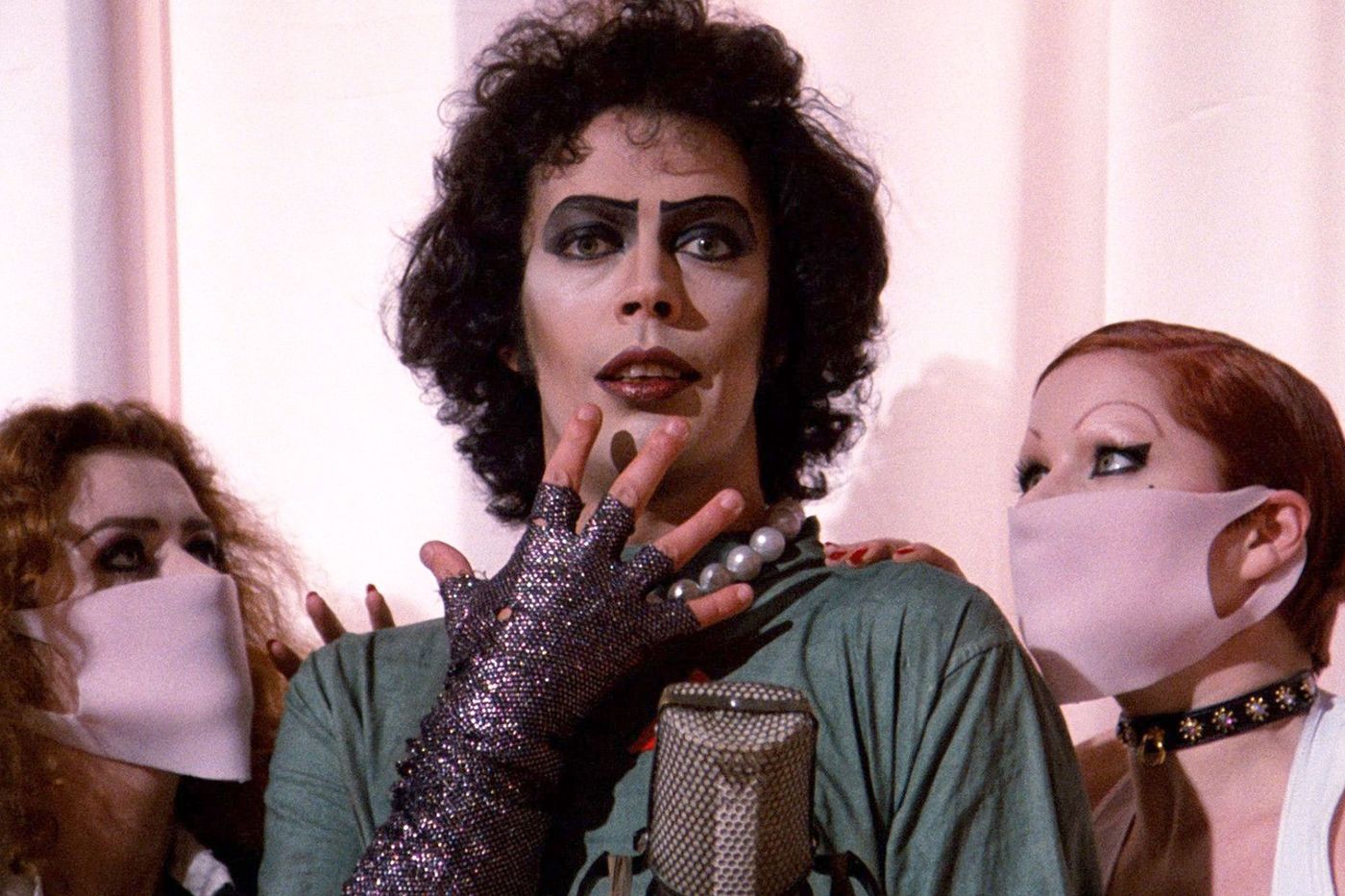Recommend we call Clockwise “cap” and Counterclockwise “no cap”
That works for “righty tighty, lefty loosey” as well
I know someone said more or less the same thing when it was posted on Tumblr, but if the schools realize most of their students don’t know a thing they should know… Shouldn’t they teach it?
Yes.
But they don’t need to know it. So they stopped teaching it.
its not in their standardized tests and that’s the only thing that determines funding. Its a nightmare …
Apparently it’s literally in the standardised tests… that’s what’s causing the problems! 😉
That is a good point, but analog clocks are IMHO in the realm of sundial clocks or audio casettes or floppy discs. Technology that was once usefull, but now it’s replaced by better alternatives. Time is after all just a number, and it does not matter how we choose to represent it.
It’s not better, it’s just different, your comparison is flawed.
Personally, I prefer analog watches for most cases, because it’s much easier for me to do calculations visually. To add 6 to 7/19 on a digital clock I need to turn on my math brain (19+6=25, 25>24 => 25-24=1), but on an analog watch I can just visually read the number opposite of 7.And that’s just one example, there are other cases, besides just being easier to read at a glance. I’ve used both digital and analog watches since birth, but analog watches are marginally better for daily use, where to the second precision isn’t necessary.
I need reading glass (sigh I got old) With an analogue watch face I can work out the time, blurred lines can be seen. Cant read blurred numbers.
Time isn’t just a number though. Especially not when it comes to clocks. And it’s also bound to Mass.
100% it is antiquated technology.
Are they going anywhere, tho? They start cheap and are very energy-efficient, so I think they’d stay. If there is a probability to face them IRL it won’t be bad to learn how to read them.
As someone who struggled with analog clocks into my twenties, being able to see the hands move gives me a better sense of time passing and I remember reading stuff that supported that. I have a better sense how much time I have left for something looking at analog vs digital basically and it’s a fairly common experience apparently
Digital isn’t better it’s just different. Also a tonne of wristwatches are still analogue.
Wristwatches are just jewelry at this point tbh. They’ve been rendered completely redundant by cell phones. The only people under 60 who wear them are doing so as a fashion statement.
I’m sure a lot of wristwatch stans will downvote me but I don’t care I’m still right
For office attire or going out, sure.
If you’re doing repair work, running lines, etc, a watch is the choice. Your hands are busy, so a watch is what you need (Except for specific trades where you don’t want to risk it getting caught in machinery).
I can say with 100% certainty that I know large swaths of folks in their 20’s and 30’s who regularly wear watches. Some smart, some digital, some analog.
Ever since college I’ve always worn a cheap watch on my wrist least for the same reason my grandpa stopped keeping a pocket watch: its more convenient to check on your wrist for the time than your pocket.
Granted we’re getting way off topic here since except for a few years its ways been a digital watch. Asserting analog watches are more numerous in models when digital watches are more numerous in sales, therefore reading an analog clock is a useful skill is odd to me. When I was wearing an analog watch for my allergies it was a flieger because the mental tax of making the hands turn into a singular time was a frustration.
I learned, though, from this that how you present time changes how you perceive time. Kids who grow up with digital representations of time consider “the current moment” in a much narrower and instantaneous scope than people who grew up thinking of time as being a spectrum on a dial
I use my wristwatch all the time to take dogs’ pulses.
Having a cell phone next to a grumpy dog is asking for a broken cell phone. I’m sure people in other fields need wristwatches as well.
Just because you don’t use them don’t mean they’re not useful.
Watches are just more convenient. You don’t need to carry a phone everywhere and with texts and calls showing on the watch you don’t need to find your phone to check.
I use my watch with alarms/ timers to know when I need to clock out or in from lunch etc while I mostly leave my phone at my desk while at work so if I’m walking around the building I still get my alerts through my watch
Watches that can get alerts can show digital time. So, chalk another point up for not learning analog time.
Wristwatches don’t have the negative psychologically addictive and anxiety-producing effects of smartphones
It absolutely is tho. Usually more precise, 1:1 translatable into written text, can use the superior 24h system and uses the same reading system that is already taught in school anyways.
There’s nothing stopping an analog clock face from representing 24h time:

🤢 what an utter abomination
This is why puppies die
I was ready to hate it but after a good look, it doesn’t look that bad. Doesn’t work for small wristwatches but could look nice for a big wall clock.
Right! Just to prove a point, I am going to make an NTP enabled rolex, and sync it to my microsecond accurate local NTP server! :P
To be fair, I did have a watch that automatically synced itself to the us naval observatories atomic clocks over the air.
Yeah, but you need to factor in the distance to the transmitter. Going to add at least a few microseconds to your time accuracy!
Latency is accounted for in the sync process
“Ususally more precise” > This depends on how precisely it is set, not on the display. Unless it’s a connected watch, but then it’s much more expensive and less energy efficient.
“1.1 translatable into written text” > Both are, you’re reading the same number
“Uses the superior 24h system” > Adding 12 to a number isn’t complicated. And with habit, most people who use analog watches and the 24h system know which position of the needle means what number in 24h format without doing the math. Some clocks don’t even have digits. Unless you’ve been sedated and woke up in a room without windows, you’ll know which side of 12 you’re on. And otherwise, you’ve got more pressing issues.
deleted by creator
I used to have one, but now I set my phone clock to be displayed as an analogue clock so that kind of made it obsolete, since it now has all the benefits of an analogue display with the additional advantage of automatically syncing time and adjusting for time zones and daylight saving time.
I wear a watch for the time. I like it more than using my phone.
deleted by creator
Absolutely not comparable to floppy disks. The hands are a representation, not a technology. Technology-wise, most modern “analog” wristwatches are quartz, and therefore digital, not actually analog. Yet we choose to make them with hands because that provides a better representation of the passing of time.
deleted by creator
The reason is better is because a number on its own doesn’t provide any representation whatsoever of the passing of time. It represents the current observed time, but it does nothing to represent graphically how much of the day is left.
The arguably best representation of the passing of time is a 24h analogue watch/clock, even if that has its own set of issues which make it a terrible way of displaying the current time.
deleted by creator
It goes beyond just showing what part of day you are in. Everything is reduced to angles. You don’t have to do any math with numbers, just look how much the pointer has to move to see how much time is left until an event you are interested in, and you get to visually compare that angle with the entire half of a day to get an even better perception of the passage of time.
Technology-wise, most modern “analog” wristwatches are quartz, and therefore digital, not actually analog.
Wat… that’s not how that works. Quartz watches can be digital or analog but what matters is whether it has a digital display or analog hands.
Knowing a clock is more than just telling time.
When you’re walking with your homies you gotta be able to call out “gyat 3 o’clock” , so your fellow bros know where to look.
Ok you know what. I was ready to conclude that learning to read analog clocks isn’t that useful but you’ve actually convinced me otherwise.
Honestly, how often do you read analog clocks?
I mean, I learned it as a child, but it’s been probably months since I actually had the need to read an analog clock, and I’m just not used to it anymore. I have to think about it, 20 years ago it was just my spine doing the thinking and it felt effortless.
Every day?
A lot, since I have an analog wristwatch and a wall clock. There were also analog clocks in several of the exam rooms where I last had exams.
I guess many people don’t use them regularly, but regardless, the simple fact that they still exist is enough to be worth learning about them. Not everything you learn at school is meant to be used every single day.
Every day? I use an analog watch face on my smartwatch, I have an analog clock in my car, I have another couple at home….
So what? I don’t.
I don’t have a smart watch and hardly anybody I know actually owns some analog clock?
Take a look around you. Where are any analog clocks? Church towers, train stations, old people. That’s pretty much it. Your smartwatch is a choice. You could just as well use a digital watch face. There is literally no benefit in that case - except your personal preference.
So since you don’t use something no one should learn it? Crap take.
You literally asked “Honestly, how often do you read analog clocks?” and I answered. And then you say “So what?” So why did you even ask if you were gonna turn around and belittle answers?
It’s called rhetorical question.
I’d argue that you are a very small minority. Most people under 50 probably barely have any analog clocks around.
Most people under 50 probably barely have any analog clocks around.
Every home/apt of every under 40 year old person I have ever been in has had at least one analog clock. And most have had several.
Also, grandfather clocks are a thing. And they’re gorgeous.
Extremely anti-social to act like digital clocks are better - similar to acting like social media and Facetime calls are in any way superior to irl face-to-face interaction - as our current loneliness epidemic demonstrates
I disagree, I am under 50 and wear an analog wristwatch every day, but if I want to know the time I just look on my phone.
Daily. There’s one in my kitchen and one at my office.
I actually agree with you. I can read an analog clock, but what worth is the skill? Most clocks are digital, and it gives me nothing more to read an analog one. People downvoting you is just silly. Some skills are allowed to die out if they add no value in modern life.
Yeah, same for me
Someone else made a comment and I think it’s great so imma plagiarize it-
If kids are taught to read an analog clock early, which isn’t very hard to learn, they are getting a leg up on fractions, percentages, and geometry.
I don’t actually believe this is true.
It rather, I imagine that they could get an even greater leg up if that time was spent teaching something else
I wonder how many people feel this way about writing when everyone just types/texts everything.
There are fewer and fewer applications for writing, but it’s still more important than reading an analog clock.
How so?
I genuinely don’t understand the clock-face-reading-is-a-useless-skill opinion so both seem equally important to me.
Fair enough. Most people don’t encounter analog clocks anymore. And many of us have smart watches or phones where we check the time. Since I have a non-analog watch, I don’t find I ever look at analog clocks anymore. If it’s in a room, I just don’t notice it. Growing up, it was important to know, but now I just never have a use for it. Learning is important, but there are so many more interesting and useful things to learn.
Yea that’s kind of what I was thinking when I said eventually handwriting will go the same way.
If people never encounter it and do all their writing on keyboards, it’ll eventually be a useless skill as well.
It’s not just about telling time though. It’s about representing things in a different way. Correlating one thing to another, and making someone think until the representation automatically becomes the output. You are forced to see things in a different way, which is what learnding is all about.
Learning how a sundial works would teach them more than leaning how an analog clock works, in that regard.
Back to kindergarten then.
OK let’s have a lesson for those who find this difficult. First, remember that little kids pick this up quickly and easily, so you can too!
We all know there are 60 seconds in a minute, 60 minutes in an hour, and 24 hours in a day, right? and that the day is divided into the a.m. of 12 hours and the p.m. of 12 hours.
So analog clocks show those 12 hours as the numbers 1-12 evenly spaced around the clock face. Now look a little closer and you see it’s also divided into 60 marks with a tick mark for each of the 60 seconds/minute or 60 minutes/hour. Hang on, we’re almost there!
The little hand points to the HOUR number (1-12). If it’s in between two numbers, that means the time is in between those two hours.
The big hand points to the MINUTE tick mark. Notice that the 1-12 numbers coincide with each 5th tick mark so it’s easy to count them. Just count by 5’s! So if the big hand is between the 3 and the 4, that means the minute of the hour is between 15 and 20, look at which tick mark for the exact minute.
Now, can you figure out how the second hand works? Good! Kindergarten dismissed!
/s
Sounds like divisive bullshit.
After all the millennial horseshit we had to hear in the 2010’s and we’re just gonna turn around and do the same shit, huh?
I’m not gonna do that, fuck that. I do hope this much screen time is ok for kids, even as a young programmer I didn’t have an iPad everywhere. Nobody seems concerned about their privacy, but guess what: neither did my millennial peers.
I think everything will be ok with alpha and Z. Let’s not repeat our the mistakes of our parents.
I think it’s important to not give certain things the benefit of the doubt. This clock stuff is just plain stupid to get bent out of shape about, but the other two are serious concerns.
This is just anecdotal, but I was a late 90’s kid that had as much screen time as I wanted growing up. I played an absurd amount of videogames, and had to be dragged outside by my siblings or I could comfortably stay indoors in front of a game or the internet for hours on end. I spent most of my early years (age 3 to age 15) in front of a screen. Yet, I did just fine in school, got a degree, and now work as a software engineer. I fell in love with my highschool sweetheart, and after waiting until I had my degree, we got married at 23, almost 10 years after we started dating. It felt like my obsessive amounts of screen time as a kid didn’t have any negative side effects to my life as a whole (outside of being a quiet and reserved person, and some could argue that that’s not a negative) and led me down a successful career path.
However, I don’t think kids these days have the luxury of doing that anymore. The content put in front of me as a kid was games made by teams that were passionate about the thing they were working on. Forums and early YouTube videos were created by some no name person with the hope of sharing something they openly cared about. Social Media didn’t exist yet and once it did, I never really got into it.
The content put in front of children these days is one of three or so things:
- Mindless dribble. (looking at you, Youtube Kids)
- Rushed, broken games made barely finished enough to get people to buy them just to make a quick buck, and the ones that are finished are so heavily tied into marketing it’s like the game is basically one big ad. (looking at you, Fortnite and Rocket League)
- Content made with the express purpose to either gain influencer status, or to use that influencer status to market something, primarily to children who are especially vulnerable to the scummy marketing practices they are using.
Obviously there are exceptions to these everywhere, but I’m talking about the things that are actively being shoved down kids’ throats. It’s not that I think that the content I consumed was better than what I see kids consuming now, but I think that the motivations behind the content can just as easily influence children as much as the content itself. I think that in a lot of ways, this kind of content is actively degrading kids’ brains, and from my experience, it’s not the screen time, it’s what’s being shown on screen that’s the issue.
Thankfully I’m tech savvy enough that I can make the internet for my children what it was for me as a kid, without all the marketing and money making schemes that pass as content these days, but a lot of people just toss a tablet in front of their kids and call it parenting.
I was going to rant about privacy as well, but this is getting way too long. Just know that I think digital privacy is really important, and think that we’ve paid the price for not considering it earlier, and there are ways we can save our kids from the same fate.
Sorry, I tend to write way too much on topics I care about, thanks for coming to my TED Talk.
tl;dr - The clock thing is stupid, but please approach the constant exposure to the modern day internet and the digital privacy topics with a bit more scrutiny.
“Gen-z is killing the analog clock industry” news articles incoming
Yup, hating on the next generation is a tale as old as time. Idk why, but every generation seems to do it. Maybe it’s being uncomfortable with them being different or afraid of their youthfulness. I don’t get it.
Alternate title: Students cannot tell the time because schools are removing analog clocks from the classroom
When I worked data entry, there was a chart for cursive as people couldn’t understand cursive writing, and these were adults. I think this may check out (not because they’re lacking, but because they probably weren’t taught).
I know how to read and write in cursive but there are still a lot of people whose handwriting I can’t read because it’s so sloppy and idiosyncratic. A chart wouldn’t help me.
Yeah but people’s cursive is more inconsistent than print. It can be super bad and print is more practical. You could say it’s Same with a digital clock but an analog clock is always the same with circle and 2 hands while I don’t know what characters people are trying to do with cursive.
I learned cursive but I’m sure have forgotten how to write it, especially some of the capital letters. Thing is learning it now is really just for backwards compatibility. Yes, it’s faster to write in cursive when writing by hand, but how often is that coming up these days, for most people?
Yeah I am way out of practice in my cursive. I can still read it but it wouldn’t come naturally. Cursive was pounded into my head at a young age. Teachers saying we would used it every day in our lives. That was probably true for them but it was certainly not true for me.
The only time I ever use cursive is signing my name. The only time I read cursive is a letter from my grandparents once they pass that would basically be the end of my cursive reading.
If I don’t have access to a keyboard something has gone catastrophically wrong (I work in IT)
Not often I think, unless you read a lot of historical documents/letters. But even a lot of those are transcribed these days. So likely only people working with doctors (and even then, probably just specific medications). Outside of the data entry job, I don’t think it’s come up in my life outside of school.
This would be gen alpha at this point no?
Who cares. Analog audio, video, phones, all out the window. Next people will be complaining people don’t even know anything about vacuum tubes. Digital clocks are easier to read and make more fuckin sense. Leave the kids alone. 🙄🙄🙄
1 if u dont kids how to do a thing they dont learn
2 and more importantly; finally, analog clocks have no place in our wold and every last one should be in trash they serve literally no purpose, i have always hated them and i will delight in their death.
What if I want to know the time?
digital clocks will rule the world our time will come ur children’s children wont even say clockwise and anti clockwise cuz they wont know what those are
I am curious how else we would describe the direction of circular motion
I’m a millenial and I can read analog clocks, but it takes me a few seconds, it’s not as instant as with digital ones.
bruh I can read analogue clocks and I’m gen z. it’s probably rage bait though, so who cares :/
I’ve worked in 2 different schools in the IT department and 4 others as a volunteer lecturer (I got a name tag that said Technology Evangelist) I found that putting an analog clock in the screen saved of computers in the classroom was more likely to result in the clock actually being on time.
Too many clocks in classrooms are very old or even battery powered but neglected.
I don’t think kids are dumb just they aren’t getting a world that is properly maintained by competent people that care about their work and are adequately resourced to do the whole job.
Well, in Germany… depending on the school and people, we cared a lot for those clocks and maintained them well
During my final exams that lasted from may to July they didn’t even bother to set the analog clock to the right hour…
Even for our baccalaureate
If only there was a building children could attend where they do things like teach how clocks work
Gather round, children, time to learn how to use a dial up modem, and after that we’ll go over Morse code.
Did you not learn morse code in school…? I’m rather young and that was taught in one of my classes I’m fairly certain. Even if it was mainly for fun, and only really remembered how to do SoS
Seriously! I’m pretty sure that was part of 1st or 2nd grade. Maybe both…
In my elementary school we even had clocks, where the numbers were large dice the teacher could take out and rotate so they showed ½, 30 or 18 instead of 6, for example. It’s not hard to learn, if you’re at a school. But then again, digital clocks are so everpresent that it might not actually matter…
The problem is unless you really use the skill a lot you’re not really gonna learn it from school. I had to teach myself how to read analog clocks in highschool cause even though I’m pretty sure I learned it in elementary school I grew up with computers and eventually smart phones so I never had to use it.
Edit: Also for context I was born in 2001
We had one in every classroom. So we only had to look at it for reinforcement of the original lesson.
We had them too but at least for me in elementary school I didn’t really care what time it was. I remember I knew what position on the clock meant school was done but other then that didn’t really need to read it cause the teachers would just bring us as a class to whatever our next class was for that day. By the time I got old enough to start caring smartphones were prevalent enough that I never really needed to learn how to read a clock. It wasn’t until highschool where teachers got more strict about enforcing no phones out in class that I then learned how to read clocks so I could know when class would be done.
We learned analogue clocks in children’s TV also
It’s true. I teach college kids, and a couple of years ago my class was taking a midterm. The room didn’t have a clock so I put my watch on the document camera display so they’d know how much time was left. A girl in the front row asked me what time it was, because she couldn’t tell time. After she turned in her test, thinking she must be kind of embarrassed about this, I told her I’d be happy to teach her how to tell time. She gave me a look like “ok, boomer” and said no thanks.
Yeah that girl is going places in life. Though probably not on time.



















